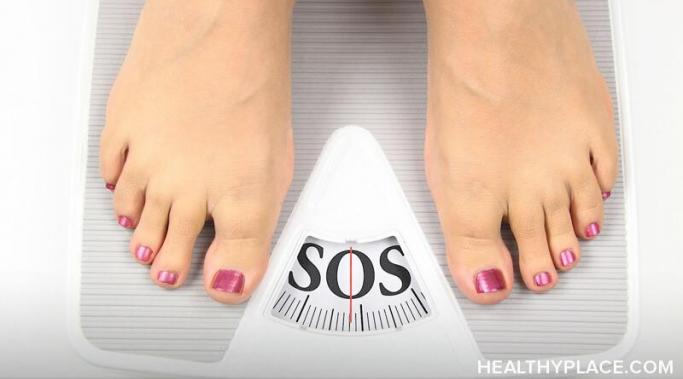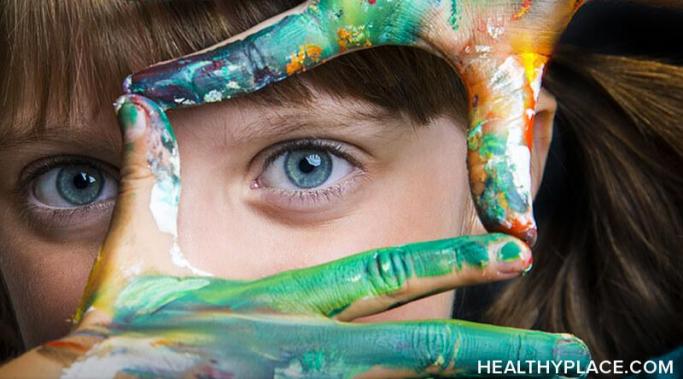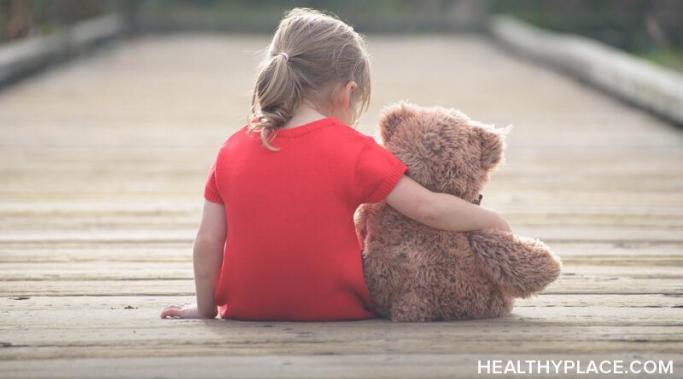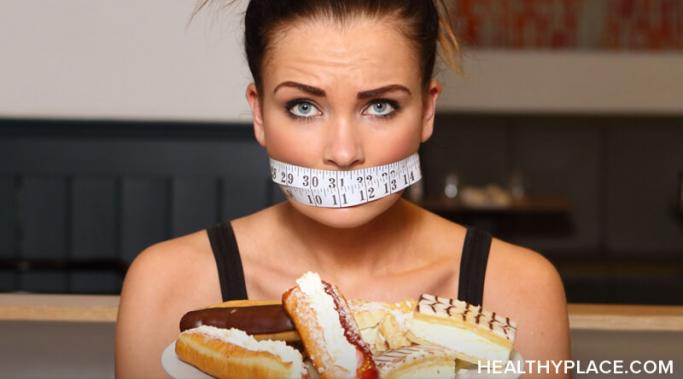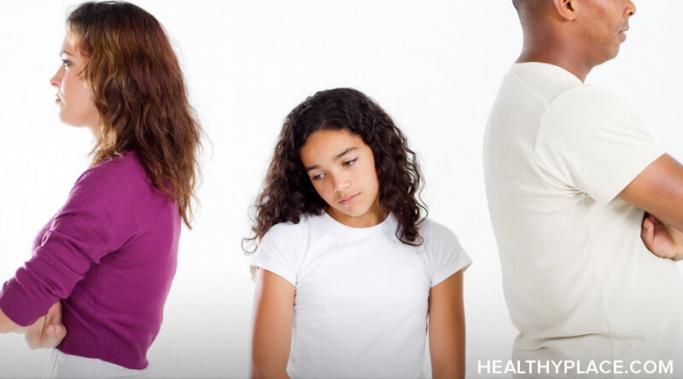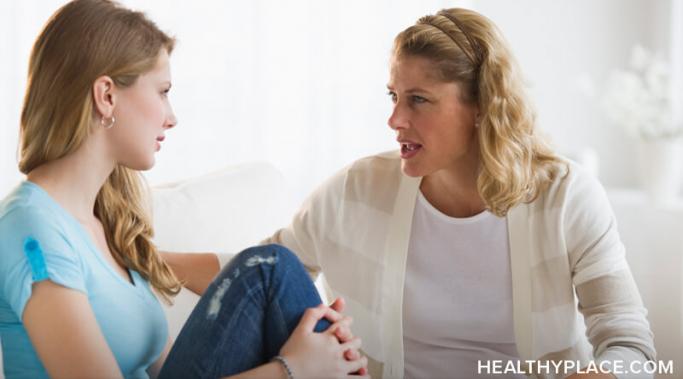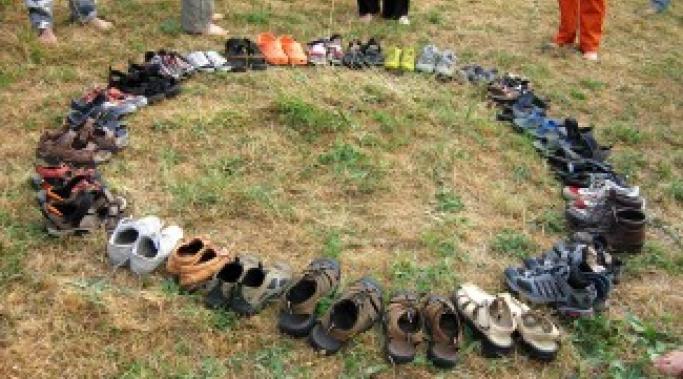I have a slew of insights about understanding eating disorders for family and friends, but I often don't have the language to communicate it all. I suspect that I'm not alone in this predicament. My hunch is most people with disordered eating issues struggle to attach words to their experience. Because eating disorders are complex illnesses that oppress the body, mind and spirit, they are painful to discuss. And their secretive, withdrawn nature can make people on the outside feel confused, wounded or even angered. They might perceive the eating disorder sufferer's actions as callous, apathetic, disingenuous and selfish. But while eating disorders do perpetuate this kind of behavior, it's not indicative of the person's true character. Underneath that hard, stony facade is someone desperate to feel accepted and validated. So I need understanding--understanding about eating disorders from family and friends—and if you can relate, I encourage you to use these talking points with your loved ones too.
Family Relationships
Building personal boundaries in eating disorder recovery helps to make the healing a priority. But when it comes to eating disorder recovery, how can you maintain effective personal boundaries, and why do those boundaries even matter in the first place? It's important to realize the purpose of having personal boundaries is not to prevent all relationships from nurturing—but to protect the safe relationships from becoming unhealthy. Constructing and asserting personal boundaries will equip you to prioritize eating disorder recovery while teaching the people you care about which behaviors toward you are appropriate and which should be re-evaluated.
Eating disorder recovery is filled with realizations; some are happy finds and some are painful ones. But we need both types of realizations to accept our imperfection and move forward in it. For over a year now, I’ve been committed to writing the Surviving ED blog for this community. I’ve loved it and it’s time for me to say goodbye. But I'm not leaving without passing on a firecracker of my most stunning realizations in eating disorder recovery.
It's important to show empathy to yourself and others in eating disorder recovery. It’s vital for our loved ones to be able to show empathy for us as we journey towards recovery. It’s also vital to be able to show empathy for ourselves because empathy will help to keep us in eating disorder recovery. Here’s how to show empathy to yourself and others in eating disorder recovery.
There are important things you don’t know about eating disorders because for many people, eating disorders are a mystery. If you’ve never had one, you may struggle to come up with anything about them. I’ve heard people fumble, “It’s when you don’t eat or think you’re fat right?” Yes and no. Eating disorders are multifaceted. They’re a mental illness many people can struggle with for life. Here’s one important thing you don’t know about eating disorders.
There’s a phrase that eating disordered people love to hear. We must be careful because this phrase can validate the person’s disorder. When you’re struggling with an eating disorder, food and body image weigh on you all day long. Your mind whispers and screams commands about food or exercise and berates you when you can’t follow them perfectly. You have a slew of unrealistic expectations for yourself to live up to. Then you must factor in other people. Sometimes the people who love us can unintentionally validate our eating disorder with this one phrase that eating disordered people love to hear.
Parents, this guide shows you how to identify eating disorders in your teen. You know that the teens are a tumultuous time and, sadly, this is also when a majority of eating disorders develop. Parents have their own lives and when an eating disorder starts it’s insidious (The Many Causes of Eating Disorders). It’s a huge secret that the teen will try to hide. By the time you realize something is wrong the eating disorder is usually established. Here are the top three signs for parents to look for as a guide to identifying eating disorders in their teen.
How do you talk to someone with disordered eating around the holidays? The holiday season is a time of gathering and lots of food. The average person may complain of overindulging and gaining some turkey or pie weight. But for the person with an eating disorder, the joy of the holidays can be a time filled with anxiety (Surviving [and Thriving] During the Holidays With An Eating Disorder). Food is a part of celebration but for those with disordered eating, it can be difficult to maintain stability or stay on the recovery path. Added to that stress are the dreaded looks or awkward questions of friends and family members. Here’s how to be a supportive person and talk with someone with disordered during the holiday celebrations.
How do you talk to someone with disordered eating around the Holidays? The Holiday season is a time of gathering and lots of food. The average person may complain of overindulging and gaining some turkey or pie weight. But for the person with an eating disorder, the joy of the Holidays can be a time filled with anxiety (Surviving (and Thriving) During the Holidays With An Eating Disorder). Food is a part of celebration, but for those with disordered eating it can be difficult to maintain stability or stay on the recovery path. Added to that stress, are the dreaded looks or awkward questions of friends and family members. Here’s how to be a supportive person and talk with someone with disordered during the Holiday celebrations.
We recover in community. We may think that our eating disorders, or addictions, separate us from others (Never Alone: Overcoming the Loneliness of Eating Disorders). We may think that no one understands, that we’re unique in our “specialness,” or our suffering. Then we enter therapy, a facility, or a group, and we begin to see that we’re not as unique as we thought. Our “special” form of suffering is shared by others, and guess what, they understand us. They don’t just try to listen and sympathize. They actually understand us because they’ve gone through the same things. One of the key factors in eating disorder recovery is connection to others, because we recover in community. Here’s three ways to connect in recovery.
